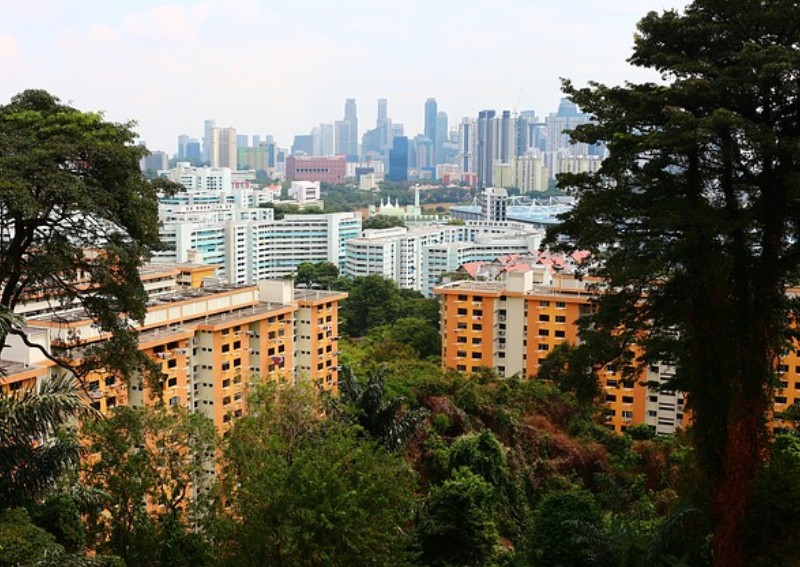Here are 4 advantages you enjoy when you clear your HDB loan early

Many people advocate for Singapore homeowners, particularly those who own an HDB flat, to avoid clearing their HDB loan early. There are good financial reasons for that and we have written about this in a previous article.
However, even though there are good financial reasons not to be paying down your HDB loan, many people still want to do so. Are these homeowners wrong for wanting to do so?
In this article, we will explain why there are advantages to clearing our HDB loans early.
Even though it's fine to have some good debts, many people still prefer to live debt-free. Living debt-free gives us peace of mind, knowing that we no longer owe money to any financial institutions for things that we have bought. This could include our car loans, renovation loans, and of course, our housing loans.
While it doesn't necessarily translate into financial independence, not having to worry about servicing our monthly mortgage, even if the payments were coming from our CPF Ordinary Account (OA), can provide us with a greater sense of financial stability.
We can live our lives with greater freedom, knowing that the home we live in has been fully paid. It's also one less bill we have to see each month, and that can bring us a level of delight that exceeds the actual financial benefits of having cleared our HDB loans early.
Interest rates are at a record low level in 2020. For example, for the August 2020 allotment, the 10-year return on the Singapore Savings Bonds is at 0.93 per cent.
Other instruments, such as high-interest savings accounts and corporate bonds, are also giving lower returns as compared to the past.
Thus, if you have excess savings beyond what is needed for your emergency savings, it might make financial sense to be paying down your housing loan instead.
For example, if you currently have a $200,000 housing loan on your HDB flat over 20 years, you will be paying $1,070 a month. If you have $100,000 in savings and use it to reduce your housing loan, you will only be paying $535 a month.
Besides a lower instalment each month, over 20 years, the interests you save would amount to $28,349.
In contrast, if you put the money in a fixed deposit and earn 1 per cent per annum, you would only earn an interest of $1,000 a month, or $20,000 over 20 years.
Of course, one may argue that putting $100,000 in a fixed deposit for period of 20 years isn't financially prudent.
[[nid:494884]]
Instead, you should be investing your savings in asset classes such as stocks, ETFs and mutual funds, which would give you a higher expected return. That's true.
The problem is that investing your money (i.e. the $100,000 mentioned above) in the financial markets and having to manage it to earn a higher return also brings an additional layer of risk and stress.
So now, you not only continue to have a larger home loan ($200,000 instead of $100,000) that you have to pay the monthly mortgage on ($1,070 instead of $535), but you also have another $100,000 invested in stocks, ETFs and mutual funds that you have to manage and worry about.
Because of the Additional Buyer's Stamp Duty (ABSD), buying a second property in Singapore has become much more expensive compared to the past.
HDB owners who want to buy a private property, while still holding on to their existing HDB flats, will need to pay an ABSD of at least 12 per cent. For example, if the private property costs $1 million, the ABSD is $120,000.
In addition to that, if you have an outstanding home loan, the maximum home loan that you can take on your second property will be lower.
[[nid:492400]]
This will be at 45 per cent of the property price, instead of the usual 75 per cent. It also translates into a minimum down payment of 55 per cent for your second property.
For a $1 million property, this would be at least $550,000, as opposed to $250,000 (25 per cent down payment) if you didn't have an outstanding housing loan.
Assuming your remaining housing loan is $200,000, it would require less cash for you to clear your outstanding housing loan ($200,000), and then pay the lower down payment of 25 per cent ($250,000) for a total of $450,000, as compared to having an outstanding loan, and be required to pay a higher down payment of 55 per cent ($550,000).
Before you decide whether or not to clear your HDB loan early, it's worth noting that there are many financial advantages for not doing so.
We would recommend you to read the reasons why it doesn't make financial sense to repay your HDB flat home loan early and to compare both arguments, before making the best financial decision for yourself and your family.
This article was first published in Dollars and Sense.